Creatine vs pre-workout: which is better?
It’s the big debate: creatine vs pre-workout. Our expert delves deep
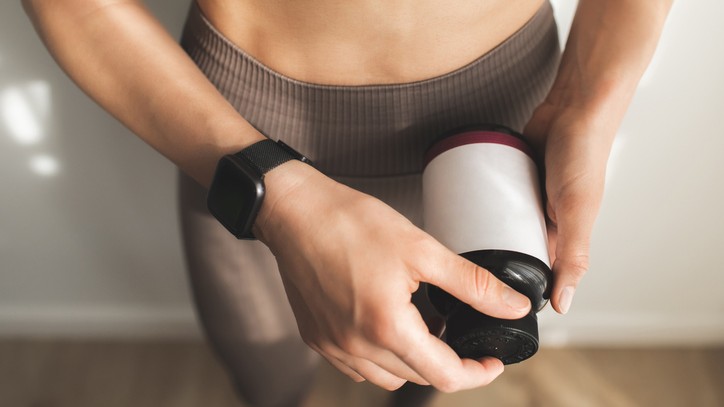

For anyone looking to hone their fitness, supplements can be a useful tool. In fact, you may be wondering which is best when it comes to creatine vs pre-workout.
The truth is, both of these supplements offer benefits, but choosing which is best for you depends on any physical or fitness goals you have.
Creatine and pre-workout supplements are suitable for all gym-goers and exercise-lovers and aren’t exclusive to those who follow a specific routine. They can also both be taken safely on a daily basis, although the time that each should be taken, may differ slightly.
Alongside the best protein powder for women, creatine and pre-workout can be taken as powders or pills, with the option of them being taken as a drink also available.
Simon Jurkiw, a nutritionist at sports and active nutrition brand Bulk lets us in on the creatine vs pre-workout debate, revealing which is best for when, and how to use them effectively.
What’s the difference between creatine and pre-workout?
There are key differences between creatine and pre-workout supplements.
Jurkiw says that, although it sounds obvious, a pre-workout supplement is taken before training to give you the energy needed to get the most out of each session.
Get the Fit&Well Newsletter
Start your week with achievable workout ideas, health tips and wellbeing advice in your inbox.
“They (pre-workouts) come in different formulations and potencies, which can be chosen to suit your fitness goals,” says Jurkiw.
Pre-workout tends to contain caffeine or other stimulants, which studies have found can aid athletic performance. In fact, caffeine alone taken 60 minutes or so prior to exercise has been proven to boost performance, in particular aerobic exercise, such as running, according to the Journal of the International Society of Sports Nutrition.
Other components of pre-workout can include branched chain amino acids (BCAA), as well as electrolytes and other vitamins.
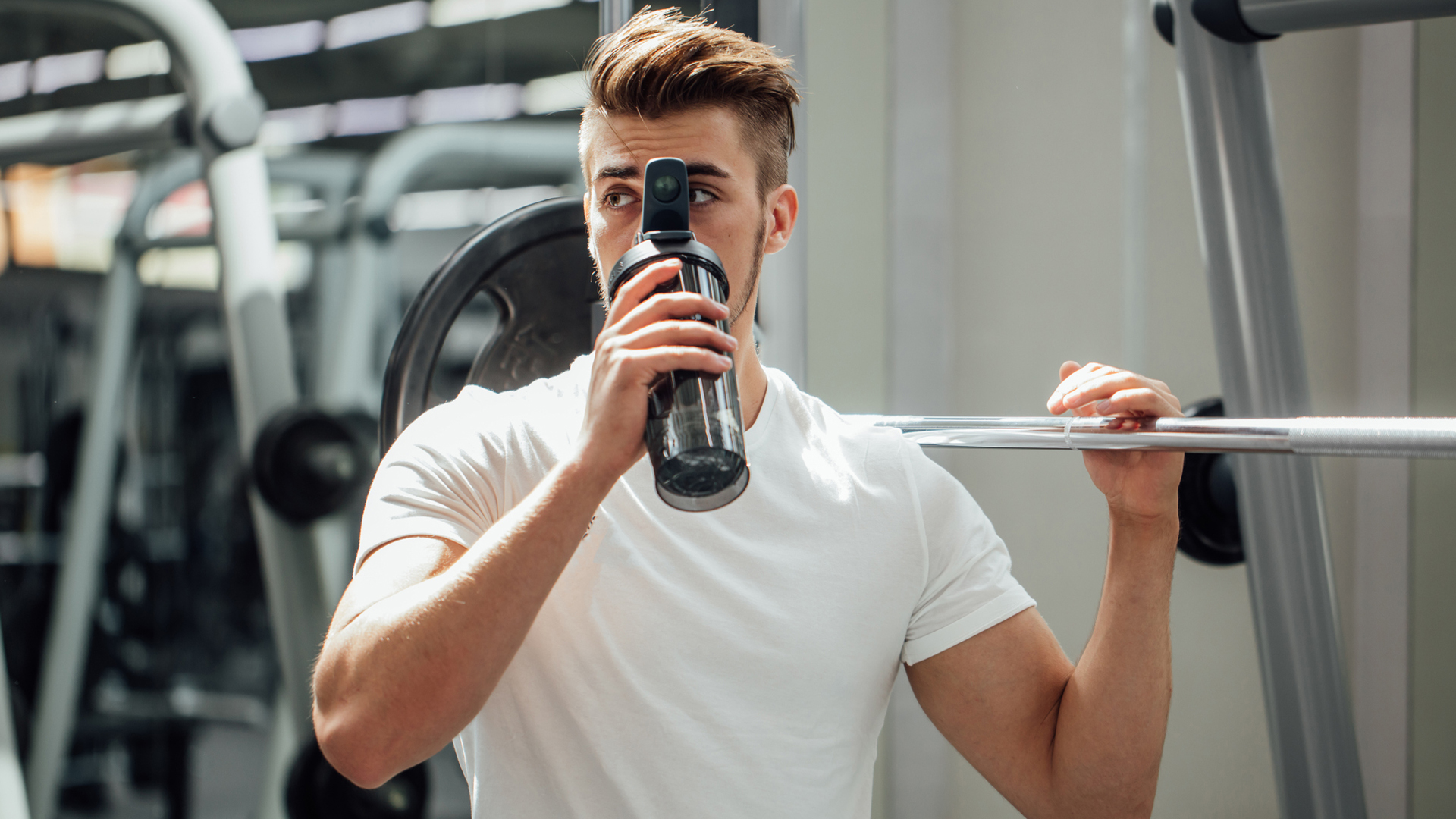
Speaking of creatine, which goes by the longer name of creatine monohydrate, Jurkiw says that it is a standalone compound, “found naturally in the body”. “Creatine increases physical performance in successive bursts of short-term, high-intensity exercise,” he says.
Further research from the Journal of the International Society of Sports Nutrition backs this up, as it proves that supplementing with creatine can help with high-intensity sprints, along with endurance training. Plus, it has been shown to help increase strength.
“Creatine supplements are taken due to the compound's natural low-absorption rate into the muscle,” says Jurkiw. In a bid to increase the creatine stores in our muscles, a creatine powder or creatine pill can help.
Both pre-workout and creatine can be used before a workout. In fact, some pre-workout supplements even include creatine.
However, Jurkiw says that unlike pre-workout, creatine supplements can also be used post-workout and throughout the day to maintain the muscles’ creatine stores and “aid overall nutrition to support your fitness goals”.
What does creatine do?
Creatine is a compound found naturally in the body. It’s made up of three amino acids: arginine, glycine, and methionine.
Amino acids are essentially compounds, that when blended together, create protein. There are 20 amino acids, nine of which are essential (in that the body can’t make them and they must be obtained through the diet), while the rest are non-essential. This means they’re made in the body already.
The are many benefits of creatine. It has been proven to help with physical performance in high-intensity exercise, plus, when coupled with resistance training, studies, including one in the the Journal of Strength and Conditioning Research, have found that there was an increase in anaerobic power as well as an increase in strength.
Creatine is great for all ages, with research in Amino Acids finding that the benefits for young adults include increased lean body mass and an increase in strength, while older adults also experience these, as well as a greater resistance to fatigue. Plus, supplementing with creatine could help to avoid the natural decrease in muscle mass, strength and bone density, which occurs as we age.
What does pre-workout do?
Pre-workout is a little different to creatine.
“A pre-workout is a supplement made up of a mixture of super-charged ingredients that will help improve your workout performance” says Jurkiw.
Pre-workout supplements contain different active ingredients that work in different ways and have specific benefits.
“These benefits include reducing muscle breakdown, increasing blood flow, enhancing mental focus, as well as providing the energy required to ensure you can train at your best,” says Jurkiw.
Due to these ingredients, and the ability for pre-workout supplements to provide energy, they might not always be suitable later in the day, as the stimulants could disrupt sleep in the evening. However, this will depend on the individual’s sensitivity to stimulants.
“Pre-workouts come in a variety of options – from workout drinks and shakes to powders and tablets,” says Jurkiw.
Creatine vs pre-workout: which is better?
Jurkiw says that while they’re both great, creatine and pre-workouts should be used to suit your fitness needs. If you’re looking to give your body a mix of some essential nutrients to prepare for a workout, without a lot of thought, then a pre-workout could be suited for you.
“A good pre-workout is going to give you everything you need to kickstart your training session, whether you're a seasoned athlete or a beginner in the gym,’ says Jurkiw. “Alternatively, taking a creatine supplement is a more-targeted approach that will work to enhance creatine stores in the muscle, which increases your overall physical performance.”
Jurkiw adds: “Creatine can be used throughout the day and should be taken daily. It’s a great option for people looking to add a natural energy boost to their training routines without stimulants often found in pre-workout mixes, such as caffeine.”
Both creatine and pre-workout can be used daily if you so wish to further support any fitness goals you may have.
Lucy is a freelance journalist specializing in health, fitness and lifestyle. She was previously the Health and Fitness Editor across various women's magazines, including Woman&Home, Woman and Woman’s Own as well as Editor of Feel Good You. She has also previously written for titles including Now, Look, Cosmopolitan, GQ, Red and The Sun.
She lives and breathes all things fitness; working out every morning with a mix of running, weights, boxing and long walks. Lucy is a Level 3 personal trainer and teaches classes at various London studios. Plus, she's pre- and post-natal trained and helps new mums get back into fitness after the birth of their baby. Lucy claims that good sleep, plenty of food and a healthy gut (seriously, it's an obsession) are the key to maintaining energy and exercising efficiently. Saying this, she's partial to many classes of champagne and tequila on the rocks whilst out with her friends.
-
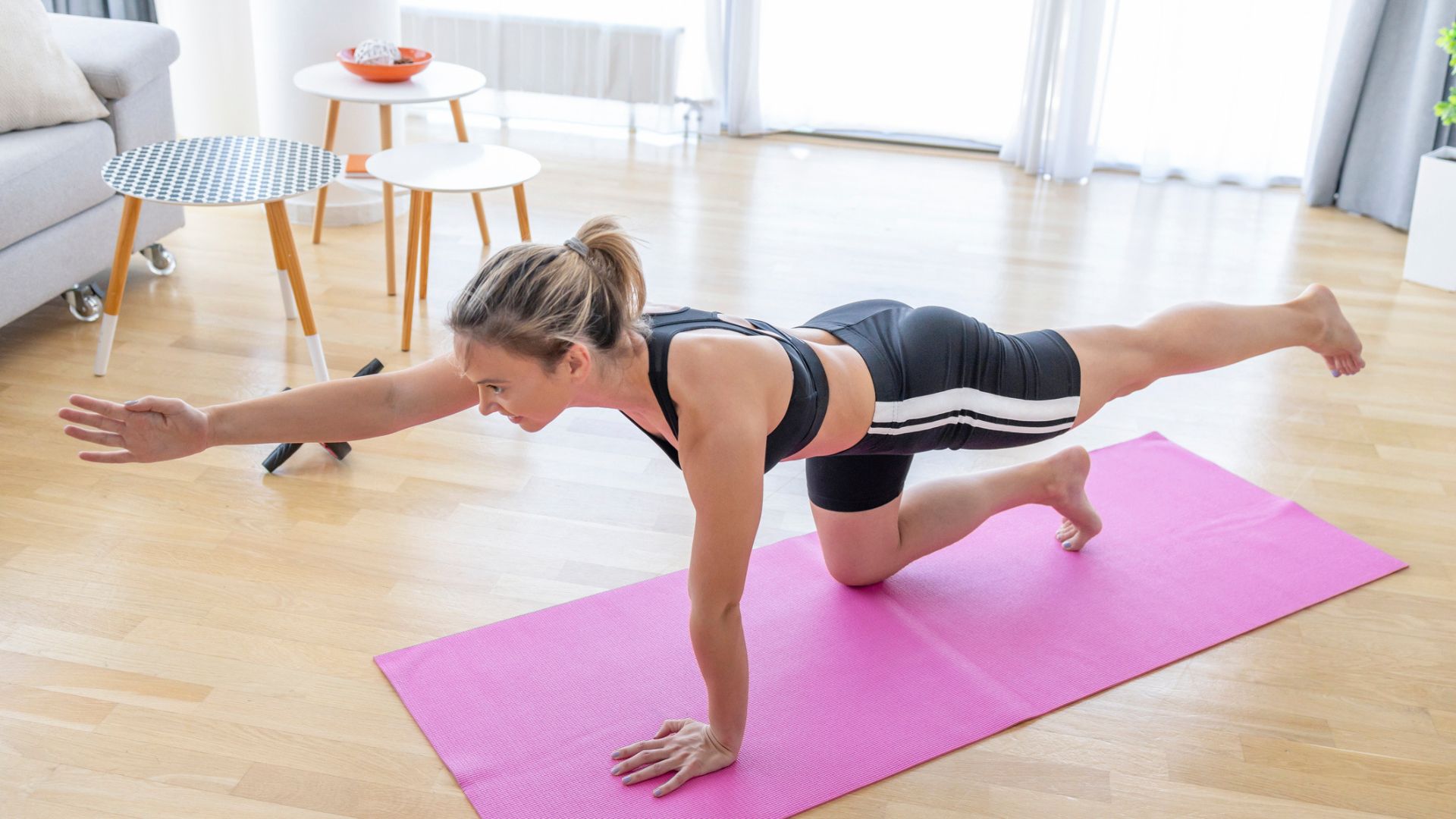 I did bird dog every day for seven days and now I understand why trainers recommend it for core strength, spinal health and posture
I did bird dog every day for seven days and now I understand why trainers recommend it for core strength, spinal health and postureThis simple bodyweight move has so many benefits
By Alice Porter
-
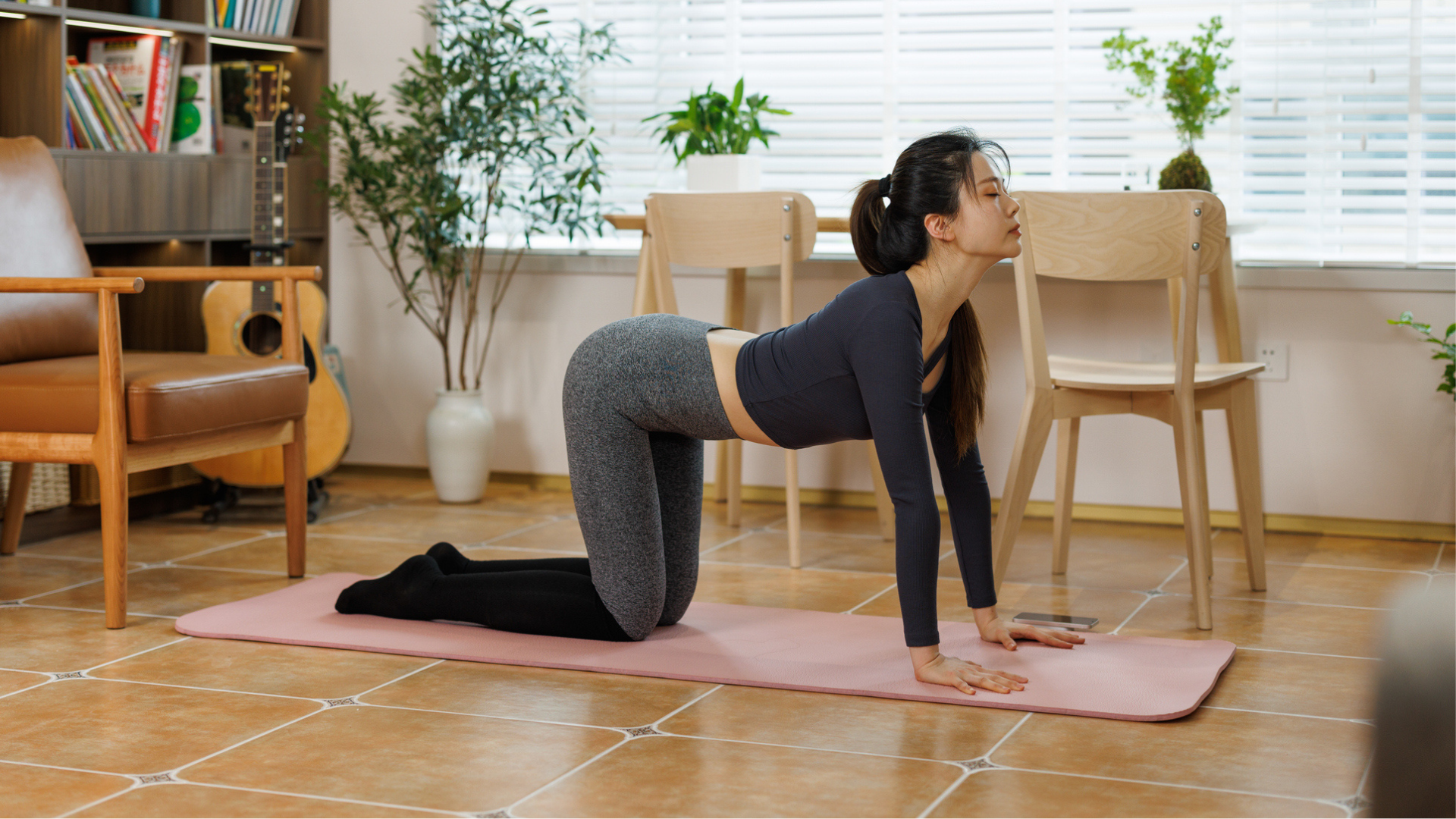 A yoga instructor says this eight-minute routine is all you need to mobilize your entire body
A yoga instructor says this eight-minute routine is all you need to mobilize your entire bodyStiff and achy muscles? Try this
By Alice Porter
-
 Best vitamin D supplements
Best vitamin D supplementsBUYING GUIDE Take one of the best vitamin D supplements to give your mood a helping hand this winter
By Alice Ball
-
 Six high fiber foods you should be eating
Six high fiber foods you should be eatingEnjoy these high fiber foods for better digestion and a healthier heart
By Anna Gora
-
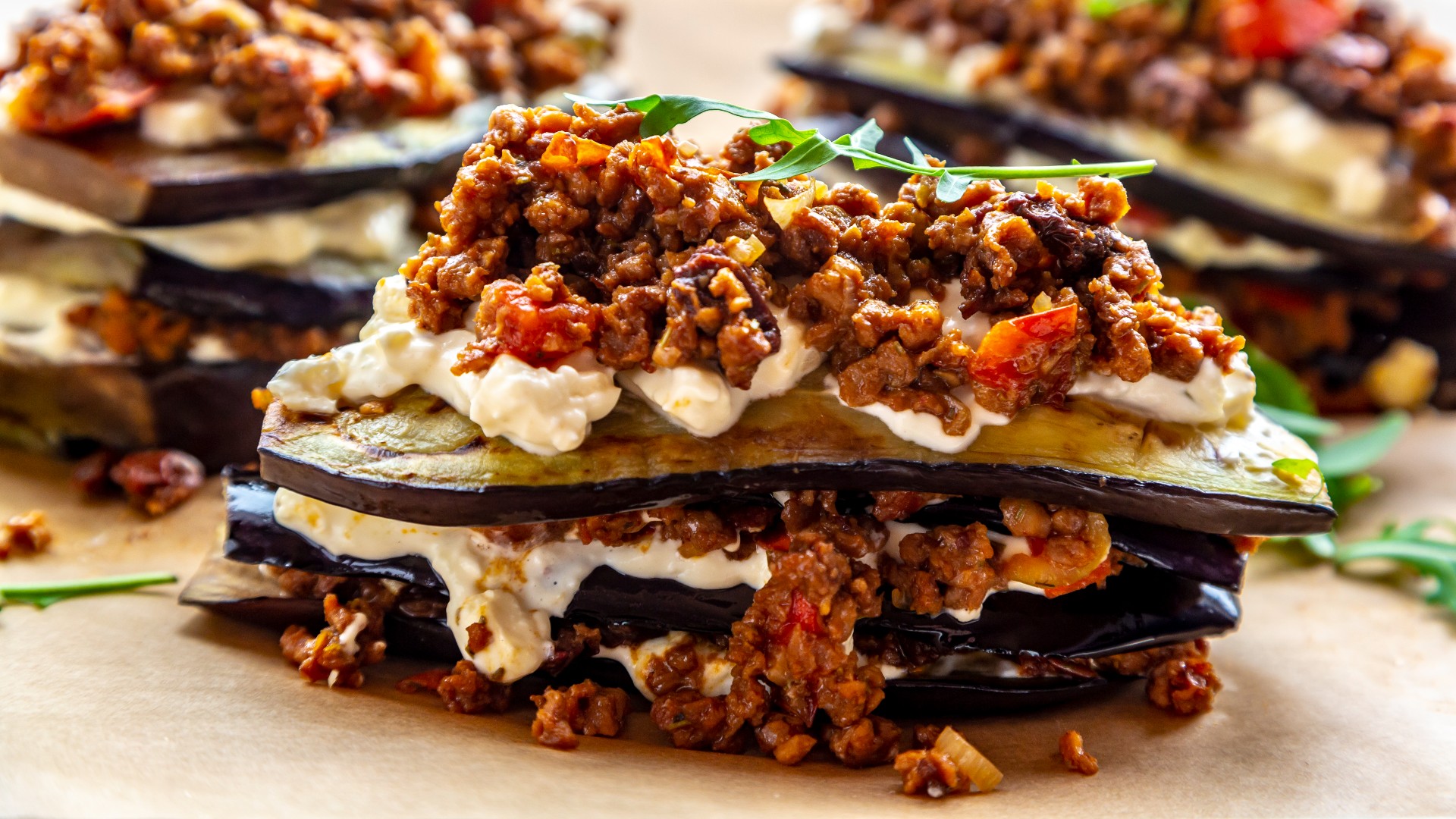 Easy low carb diet plan to help you eat well
Easy low carb diet plan to help you eat wellNutrition Looking for a low carb diet plan? We asked a dietician to share everything you need to know
By Alice Porter
-
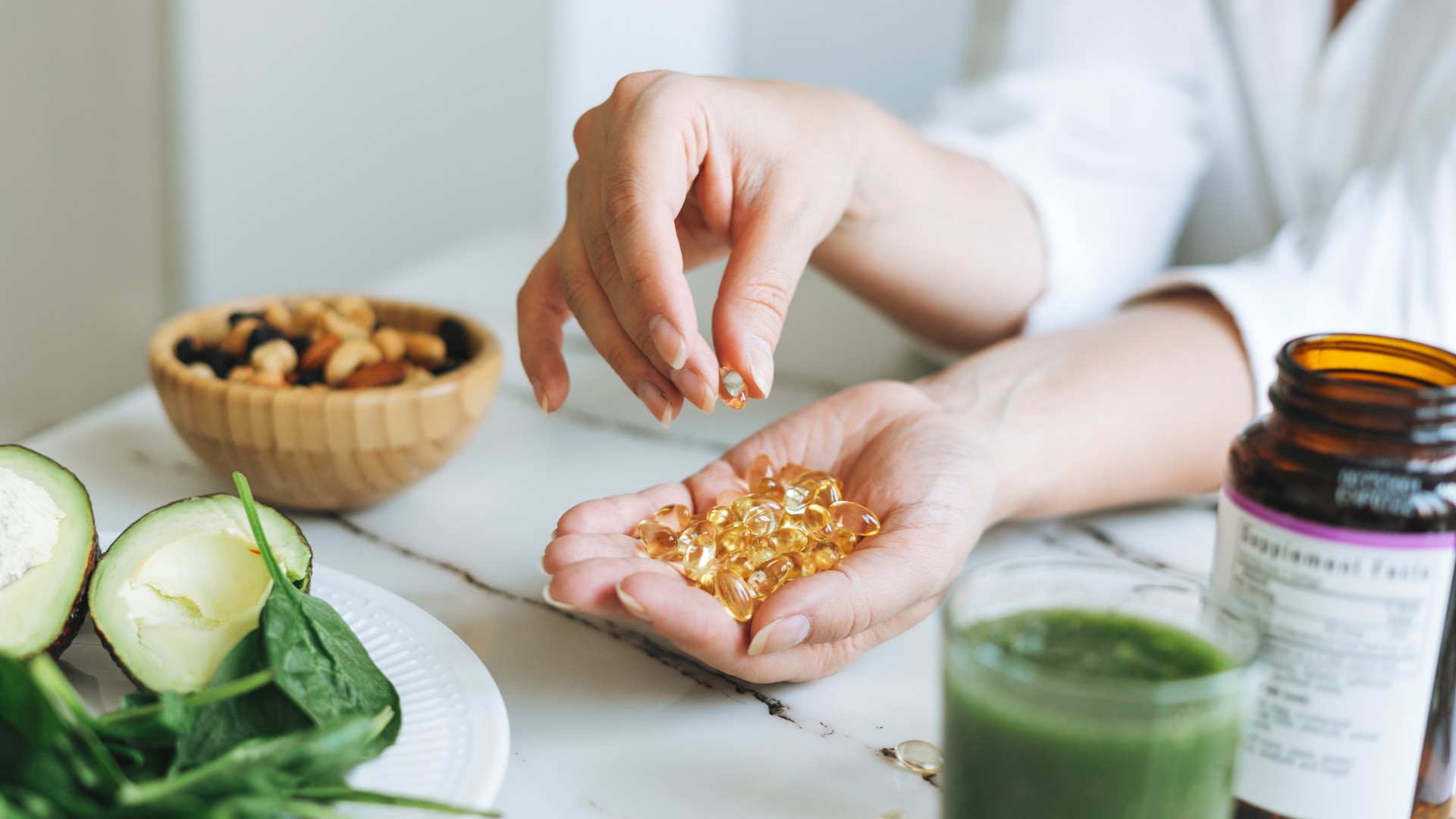 Do multivitamins work? Here’s what a nutritionist has to say
Do multivitamins work? Here’s what a nutritionist has to sayDo multivitamins work or is it better to take individual supplements? We find out which option is better and whether you need to supplement your diet at all
By Alice Porter
-
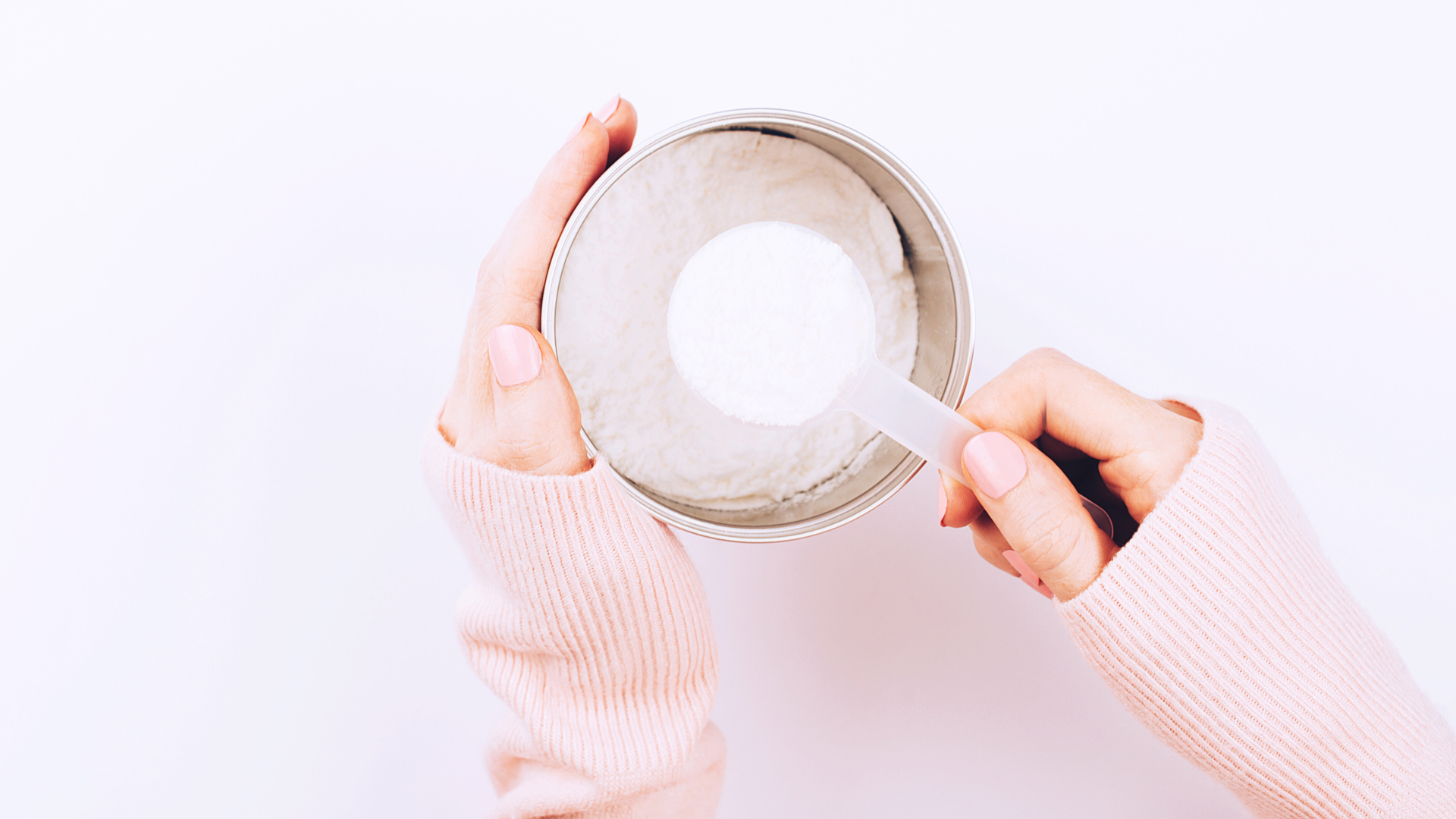 Collagen vs whey protein: what’s the difference?
Collagen vs whey protein: what’s the difference?Protein supplements are incredibly popular, but which type is best for your health? A dietician weighs up the pros and cons of collagen vs whey protein
By Alice Porter
-
 Foods for energy: what to eat to combat tiredness and fatigue
Foods for energy: what to eat to combat tiredness and fatigueFeeling tired? You may think that the only way to revive yourself is by going back to bed, but these foods for energy could help you feel full of life
By Alice Porter
-
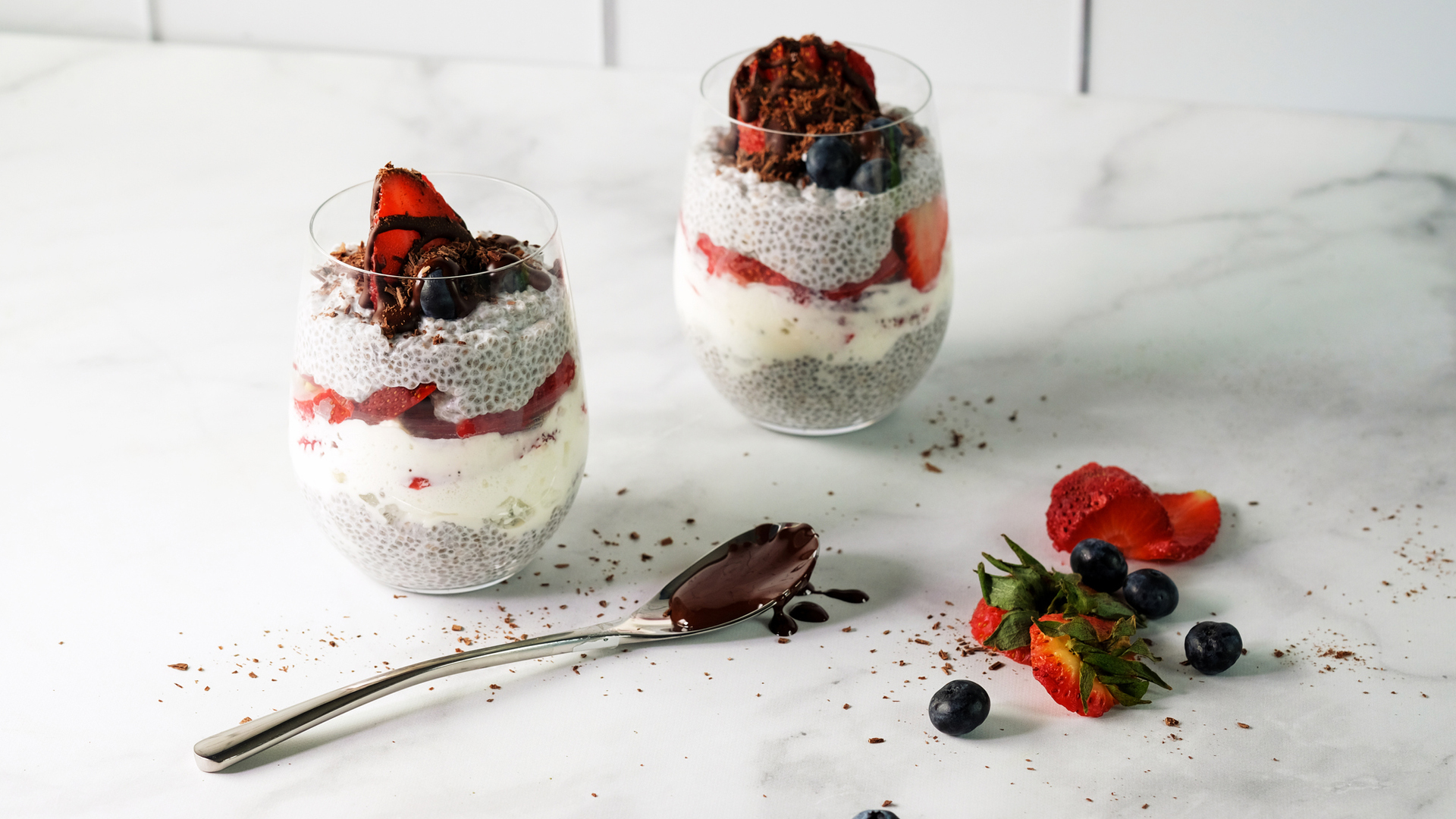 11 high protein desserts to satisfy your sweet tooth
11 high protein desserts to satisfy your sweet toothThese tasty high protein desserts will help to fill you up and build lean muscle
By Maddy Biddulph
-
 Which vitamins help anxiety?
Which vitamins help anxiety?Wondering which vitamins help anxiety? Here's everything you need to know
By Meg Walters